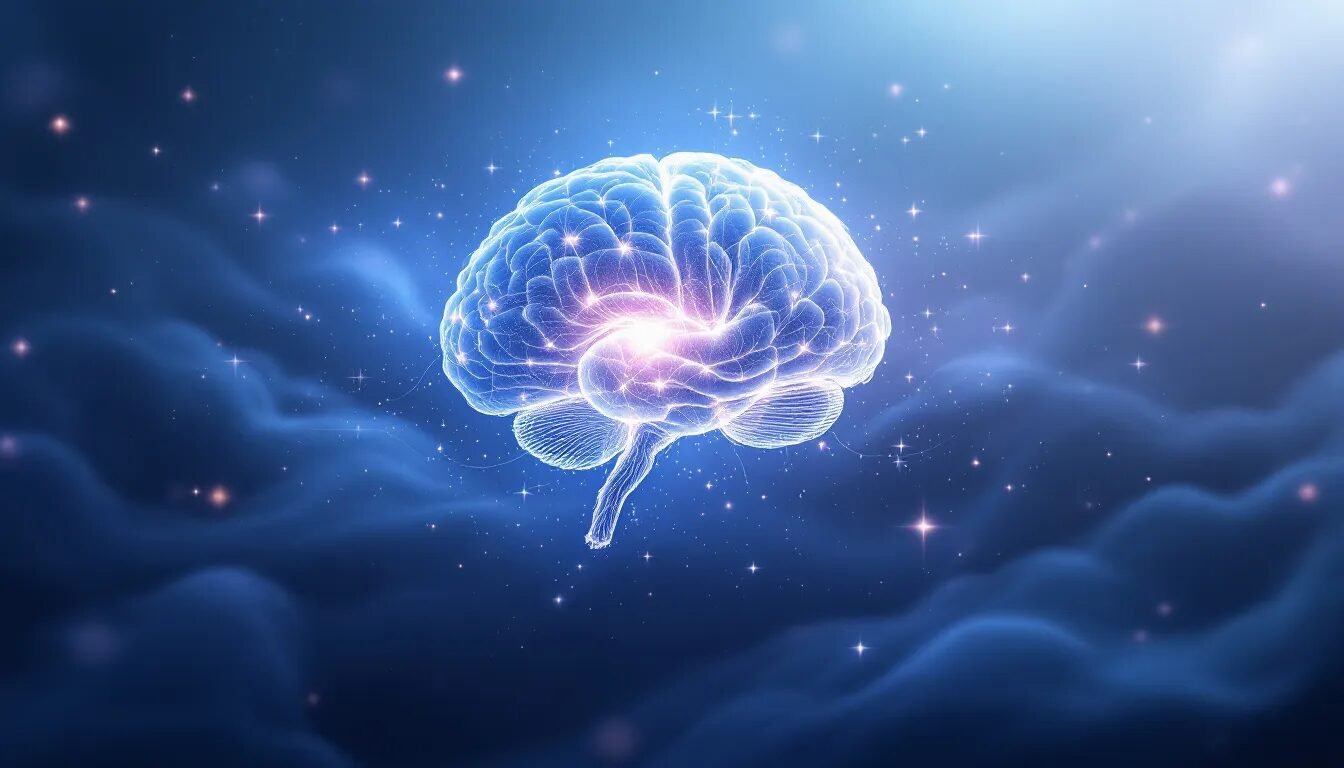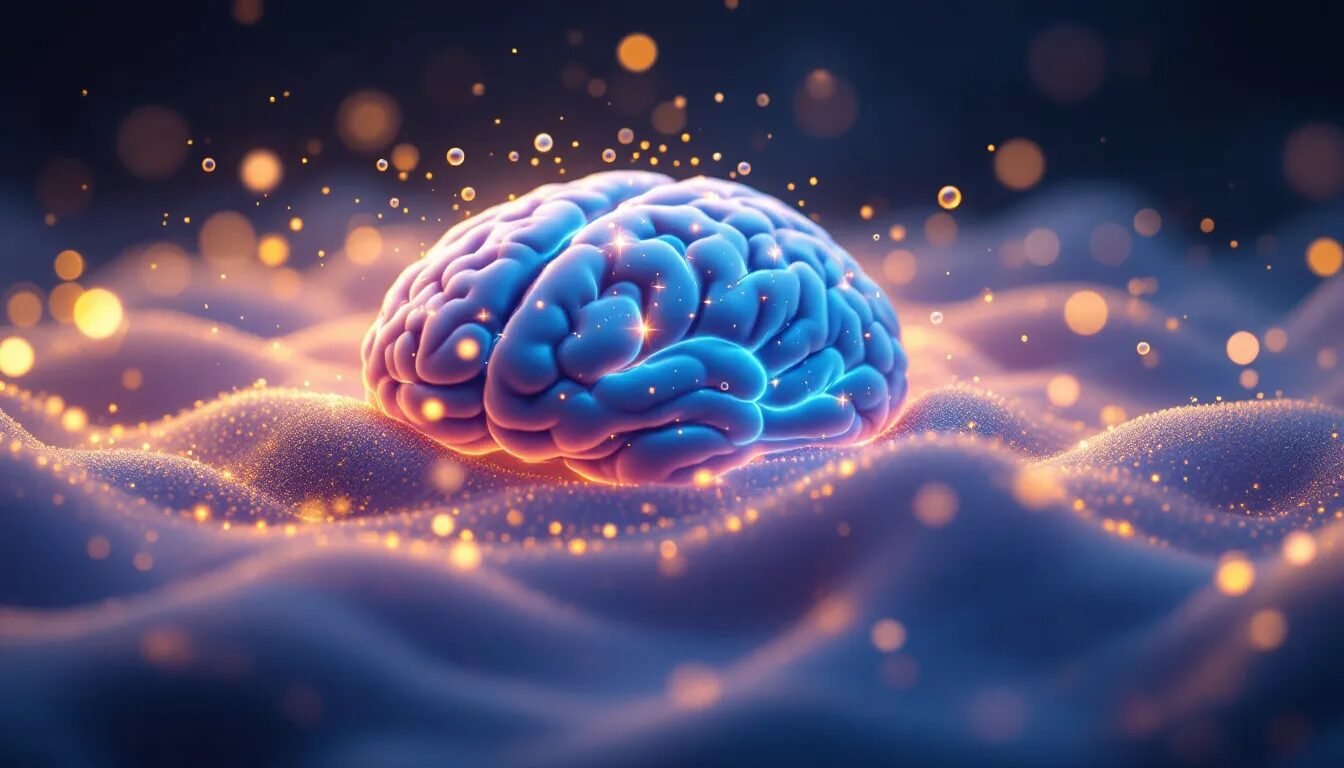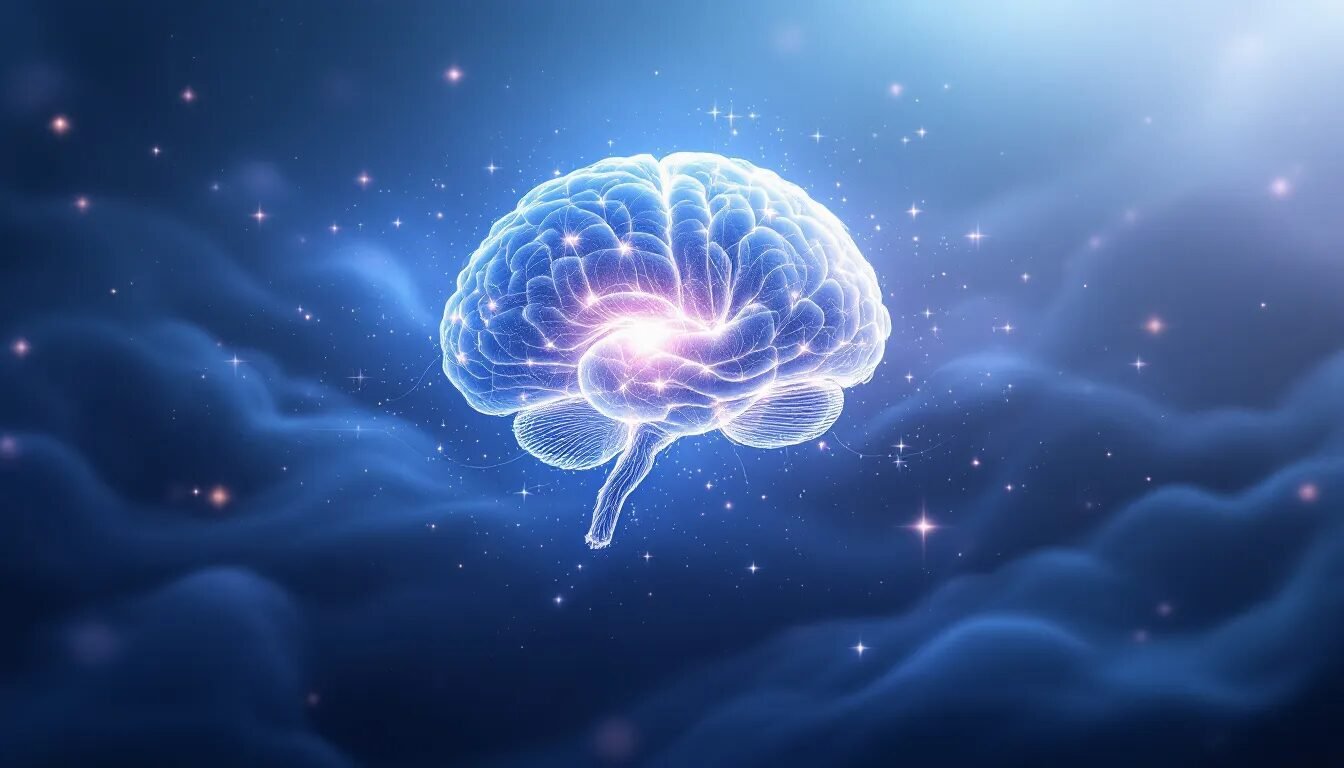
How does dopamine and sleep have an effect on one another? Dopamine performs a significant function in regulating sleep-wake cycles and sleep levels like REM. Understanding this connection is essential to addressing sleep problems and enhancing total well being. This text explores how dopamine and sleep affect one another, the results of its imbalance, and potential remedies for sleep-related points.
Analysis funded by the Nationwide Institute on Alcohol Abuse and Alcoholism has highlighted the consequences of alcohol abuse on sleep and dopamine regulation.
Key Takeaways
- Dopamine is crucial for regulating sleep-wake cycles and influencing each REM and non-REM sleep patterns, with its ranges fluctuating in response to the circadian cycle.
- Constant dopamine ranges are essential for sustaining regular sleep structure and stopping well being points, whereas hyperdopaminergia disrupts regular sleep structure and dopamine depletion can severely impair sleep high quality and REM sleep frequency.
- Analysis signifies that focusing on dopaminergic programs by way of agonists or receptor antagonists may present promising therapeutic choices for treating sleep problems linked to dopamine imbalances.
Introduction to Dopamine
Dopamine is a neurotransmitter that performs an important function in regulating numerous physiological and psychological processes, together with motion, motivation, reward, and sleep. It’s a key participant within the mind’s reward system, reinforcing behaviors and motivating people to pursue pleasurable actions. Past its function in reward, dopamine is crucial for regulating sleep-wake cycles. Alterations in dopamine ranges and launch can contribute to sleep problems, highlighting the significance of this neurotransmitter in sleep regulation.
Latest research have underscored the important function of dopamine receptors and dopamine launch in modulating sleep patterns. These receptors, positioned all through the mind, assist mediate the consequences of dopamine on sleep. As an example, D1 receptors are related to selling wakefulness, whereas D2 receptors facilitate REM sleep. Understanding how dopamine interacts with these receptors gives worthwhile insights into its function in sleep regulation and the potential for therapeutic interventions in sleep problems.
The Function of Dopamine in Sleep-Wake Regulation
Dopamine is a linchpin within the regulation of our sleep-wake cycles. This neurotransmitter isn’t solely very important for modulating wakefulness but additionally performs a pivotal function in each REM and non-REM sleep patterns. Dopamine helps us cycle by way of the required sleep phases to realize restorative relaxation. Dopamine influences each rapid-eye-movement (REM) and non-rapid-eye-movement (NREM) sleep patterns, affecting how we transition between these levels.
The degrees of dopamine in our human mind fluctuate in an everyday sample tied to the circadian cycle, which in flip influences each our sleep and wakefulness. These fluctuations assist synchronize our inner physique clock with the exterior atmosphere, guiding us to really feel alert throughout the day and sleepy at evening. Fluctuations in dopamine ranges throughout NREM sleep are essential for sustaining a wholesome sleep-wake cycle. Modulating these intervals helps preserve a wholesome sleep-wake interval.
Analysis on animal fashions has been instrumental in uncovering these mechanisms. Research have proven that manipulating dopamine ranges can considerably impression sleep regulation, offering insights that might result in novel remedies for sleep problems. Recognizing dopamine’s function in sleep-wake regulation helps unravel the complexities of our sleep patterns.
Dopamine Receptors and Sleep States
Dopamine receptors are the gatekeepers that mediate the neurotransmitter’s results on sleep. Activation of D1 receptors is thought to advertise wakefulness, whereas D2 receptor activation is linked to facilitating REM sleep. This twin function underscores the flexibility and significance of dopamine in sleep regulation. Each REM and non-REM sleep states are influenced by these receptors, making them important parts within the structure of sleep. The dorsal striatum is among the mind areas affected by dopamine exercise, influencing each wakefulness and REM sleep.
Research assessing the Wake–REM Similarity Index (WRSI) in rodent fashions have additional illuminated these results. These research reveal how dopamine impacts transitions between wakefulness and REM sleep, offering a clearer image of its regulatory features. Understanding these interactions helps us admire how disruptions in dopamine signaling can result in sleep problems.
Dopamine Launch Throughout Sleep
Dopamine launch follows an interesting sample throughout sleep. It has been noticed to peak shortly after sleep bouts, notably throughout the mild section of the circadian cycle. This timing is believed to facilitate clean transitions between sleep and wakefulness, aligning completely with the physique’s circadian rhythm. Extracellular dopamine ranges fluctuate throughout totally different sleep phases, notably REM and NREM sleep, impacting the regulation of sleep and wakefulness. Such synchronization ensures that our sleep is each restorative and well-timed.
The vital function of dopamine in these mind transitions is important. These peaks in dopamine launch assist the mind shift seamlessly from one state to a different, which is crucial for sustaining the general high quality of sleep. Modifications in extracellular dopamine launch and reuptake mechanisms impression sleep-related behaviors, additional highlighting the importance of dopamine dynamics. Aligning with the physique’s pure rhythms ensures that our sleep is each efficient and conducive to our every day schedules.
The Function of Dopamine Transporter
The dopamine transporter (DAT) is a protein that performs a pivotal function in regulating dopamine ranges within the synaptic cleft. By reuptaking dopamine into the presynaptic neuron, DAT helps terminate the motion of dopamine, thereby controlling the period and depth of dopamine signaling. This regulation is essential for sustaining balanced dopamine exercise, which is crucial for regular sleep-wake cycles.
Alterations in DAT expression and performance can considerably impression sleep patterns. For instance, research on DAT knockout mice have proven that these animals exhibit elevated wakefulness and lowered speedy eye motion (REM) sleep. This implies that correct DAT perform is critical for sustaining regular sleep structure. Moreover, DAT is a goal for numerous medication, together with cocaine and amphetamines, which may disrupt dopamine stability and result in sleep disturbances. Understanding the function of DAT in sleep regulation will help in creating methods to deal with sleep problems linked to dopamine dysregulation.
Results of Hyperdopaminergia on Sleep Patterns

When dopamine ranges soar, the impression on sleep structure will be profound. Elevated dopamine ranges, a situation generally known as hyperdopaminergia, can result in vital alterations in sleep patterns, together with the potential for REM-like exercise throughout wakefulness. This irregular state can disrupt the pure development of sleep levels, main to varied well being points, together with sleep problems. Elevated dopamine ranges result in vital adjustments in cognitive processes and responses to psychostimulant medication.
Hyperdopaminergia is not only a theoretical concern; it has real-world implications. Elevated dopamine ranges are linked to quite a few well being circumstances, similar to temper disturbances and neurodegenerative ailments, which may additional complicate sleep high quality. Analysis has led to a greater understanding of the impression of hyperdopaminergia on sleep high quality. Correcting these imbalances is important for total well-being.
One potential resolution lies in using dopamine receptor antagonists. Therapy with D2 dopamine receptor antagonists has been proven to scale back irregular REM bouts-like exercise throughout wakefulness. This strategy gives a promising avenue for mitigating the disruptive results of hyperdopaminergia on sleep.
REM-Like Exercise in Wakefulness
In mice with hyperdopaminergia, the neural exercise patterns noticed throughout REM sleep can overlap considerably with these seen throughout wakefulness. This phenomenon highlights a state of altered consciousness, the place the mind reveals REM-like neural oscillations even whereas the animal is awake. Publicity to novel environments can set off these uncommon states, additional demonstrating the impression of elevated dopamine ranges.
Apparently, the administration of dopamine receptor antagonists, similar to haloperidol, can mitigate these results. Lowering REM-like oscillations throughout wakefulness helps restore regular sleep patterns. This discovering underscores the significance of managing dopamine ranges to take care of wholesome sleep-wake cycles.
Pharmacological Induction of Hyperdopaminergia
Medication like amphetamines can considerably elevate dopamine ranges, affecting each wakefulness and sleep states. These substances artificially elevate dopamine, leading to mind exercise patterns that resemble these noticed throughout REM sleep, even whereas awake. This pharmacological induction of hyperdopaminergia will increase dopamine and gives a stark instance of how dopamine can alter consciousness and sleep structure.
Pharmacological manipulations have demonstrated that altering dopamine ranges can considerably affect sleep patterns in rodent fashions. These research spotlight the potential for creating focused remedies to deal with sleep disruptions attributable to elevated dopamine ranges.
Dopamine Depletion and Sleep Disruption

On the other finish of the spectrum, dopamine depletion can result in extreme sleep disruption. Lowered dopamine ranges are related to a state characterised by diminished slow-wave sleep (SWS) and a whole lack of REM sleep. Alterations in norepinephrine ranges may also affect the amount and high quality of REM sleep. This depletion not solely impacts sleep high quality however may also result in broader implications for total well being, together with sleep loss.
Elevated dopamine ranges, whereas disruptive, spotlight the fragile stability required for regular sleep structure. Irregular fluctuations in dopamine can result in numerous sleep problems, impacting each psychological and bodily well-being. Understanding these results is essential for creating methods to take care of wholesome sleep patterns.
Various dopamine ranges are linked to totally different sleep qualities, underscoring the significance of this neurotransmitter in sleep regulation. The time spent in several sleep phases can be affected by dopamine depletion. Sustaining the best stability is crucial for attaining restorative sleep and avoiding the pitfalls of sleep deprivation.
Impression on REM Sleep
Dopamine depletion has a profound impression on REM sleep. In mice, this depletion leads to a major lower within the frequency and period of REM sleep episodes. The suppression of REM sleep highlights the important function of dopamine in sustaining this important stage of sleep.
Dopamine’s function in REM sleep is indispensable. With out ample dopamine ranges, the standard and period of REM sleep are compromised, resulting in potential sleep problems and total well being points. Guaranteeing enough dopamine exercise is essential to preserving REM sleep.
Restoration By Dopaminergic Pathways
Restoring regular sleep patterns in dopamine-depleted states typically includes using dopaminergic agonists. These compounds stimulate dopamine receptors, mimicking the consequences of dopamine within the mind. Agonists like pramipexole and ropinirole have proven potential in enhancing sleep high quality by appearing on dopaminergic pathways.
Pharmacological research point out that focusing on the dopaminergic system generally is a promising strategy to mitigate sleep disturbances ensuing from dopamine depletion. Enhancing dopamine exercise will help restore regular sleep structure and enhance total well-being.
Sleep Deprivation and Dopamine Imbalance
Sleep deprivation can result in vital imbalances in dopamine ranges, with profound results on each physiological and psychological features. Analysis has proven that people who’re sleep-deprived exhibit elevated dopamine launch and altered dopamine receptor expression. This heightened dopamine exercise can briefly enhance alertness, motivation, and reward-seeking conduct, which could appear helpful within the quick time period.
Nevertheless, persistent sleep deprivation can result in dopamine dysregulation, contributing to a spread of points, together with sleep problems, temper disturbances, and different neurological and psychiatric circumstances. The impression of sleep deprivation on dopamine is complicated, involving each fast and long-term adjustments in dopamine launch, receptor expression, and total sleep regulation. Understanding these dynamics is essential for creating interventions to mitigate the adversarial results of sleep deprivation on dopamine stability and total well being.
Dopamine’s Interplay with Circadian Rhythms

Dopamine’s affect extends past sleep-wake regulation to the intricate dance of circadian rhythms. This neurotransmitter performs an important function in regulating the physique’s inner clock by appearing inside the pineal gland. The pineal gland is crucial for adjusting organic processes to day-night cycles, making certain that our sleep patterns align with the pure world. Circadian rhythm disturbances can result in alterations in physique mass index and related behavioral problems, highlighting the broader implications of sleep regulation on metabolic well being and weight administration.
The fluctuations in dopamine ranges all through the day are synchronized with these circadian rhythms, serving to to control sleep timing and high quality. Dopamine uptake is negatively correlated with wake time, affecting total sleep high quality. Influencing the physique’s inner clock ensures we really feel sleepy at evening and alert throughout the day, balancing relaxation and wakefulness.
Affect on Sleep Timing
Dopamine launch patterns range considerably throughout totally different sleep levels, influencing the transition between sleep and wakefulness. Important dopamine launch throughout REM sleep in comparison with waking or non-REM sleep highlights its function in these transitions. These patterns assist decide after we really feel sleepy or alert, affecting the timing of sleep onset and wakefulness.
Analysis signifies that dopamine influences the timing of sleep onset by affecting the expression of particular clock genes. These genes assist regulate our inner clocks, making certain that our sleep patterns are in sync with the pure cycles of sunshine and darkish.
Dopamine and Sleep Issues
Dysregulation in dopamine exercise is linked to varied sleep problems, together with insomnia and stressed leg syndrome. Elevated dopamine ranges can result in elevated wakefulness and sleep fragmentation, exacerbating circumstances like insomnia. Disruptions in dopamine transporter perform can additional exacerbate these circumstances, impacting total sleep high quality.
Focusing on dopaminergic programs with particular drugs gives new therapeutic choices for enhancing sleep high quality in people with sleep problems. Medicines that improve dopamine signaling, similar to MAO-B inhibitors, are being explored for his or her potential to deal with sleep disturbances. Focusing on dopamine receptors could supply new avenues for enhancing sleep well being.
The Impression of Drug Abuse on Dopamine
Drug abuse can profoundly have an effect on dopamine regulation, with numerous substances altering dopamine launch, receptor expression, and transporter perform. Cocaine, as an illustration, blocks the dopamine transporter (DAT), resulting in elevated dopamine ranges and extended dopamine signaling. This disruption can lead to vital alterations in sleep patterns and total mind perform.
Amphetamines, however, improve dopamine launch and alter dopamine receptor expression, additional contributing to dopamine imbalance and sleep disturbances. The impression of drug abuse on dopamine regulation extends past sleep, affecting temper, cognition, and conduct. Understanding these results is crucial for creating efficient remedies for dependancy and associated problems. By addressing the underlying dopamine dysregulation, we will higher handle the physiological and psychological penalties of drug abuse.
Experimental Insights from Animal Fashions
Animal fashions have supplied invaluable insights into the function of dopamine in sleep regulation. Hyperdopaminergic DAT-KO mice, as an illustration, exhibit a considerable overlap between wakefulness and REM sleep clusters, indicating altered sleep regulation because of dopamine modulation. Research on rats have supplied insights into dopamine launch and its fluctuations throughout totally different sleep phases. These research make the most of subtle strategies just like the sliding window Fourier rework to investigate mind exercise and perceive dopamine’s impression on sleep.
The experimental setup typically contains particular circumstances to look at distinct sleep and wake patterns. For instance, circumstances involving 2 hours of remark with no less than 10 minutes of wakefulness and a pair of minutes of REM sleep assist create distinct spectrogram patterns. Dopamine launch within the ventral striatum fluctuates based mostly on sleep states and circadian rhythms. Such detailed evaluation permits researchers to uncover the intricate methods during which dopamine influences sleep.
Genetic Fashions of Hyperdopaminergia
Genetic fashions like DAT-KO mice have been instrumental in learning hyperdopaminergia. These mice exhibit altered mind exercise patterns, similar to theta oscillations throughout wakefulness, indicating greater dopamine ranges. When uncovered to novelty, DAT-KO mice enter a novel awake state with REM sleep-like hippocampal activation patterns, additional illustrating the impression of elevated dopamine neurons induced by their genetic modifications and dopamine transporters.
Dopamine-depleted mice, however, enter a state resembling slow-wave sleep whereas suppressing REM sleep. These findings spotlight the various results of dopamine on sleep states, relying on whether or not ranges are elevated or diminished.
Pharmacological Research in Rodents
Pharmacological research in rodents have additionally make clear dopamine’s function in sleep. Utilizing D2 dopamine receptor agonists can get better REM sleep in dopamine-depleted mice. These research measure Wake–REM Similarity Index (WRSI) values in hyperactive animals to know the consequences of pharmacological remedies on reuptake and sleep patterns.
These findings underscore the potential for creating focused remedies to deal with sleep disruptions attributable to dopamine imbalances. By manipulating dopamine ranges with a drug pharmacologically, researchers have discovered new avenues for enhancing sleep well being.
Implications for Human Well being

The implications of dopamine’s function in sleep prolong far past animal fashions. Disruptions in dopamine ranges can result in numerous sleep problems in people, similar to insomnia and stressed leg syndrome. Analysis from the Nationwide Institute on Drug Abuse has highlighted the dangerous penalties of sleep deprivation on mind perform. Recognizing these disruptions is important for creating efficient remedies and enhancing total sleep high quality.
Potential remedies focusing on dopaminergic pathways intention to revive sleep high quality in affected people. By specializing in the mechanisms of dopamine motion, these remedies supply promising avenues for addressing sleep-related ailments and enhancing human well being. Even one evening with out sleep can result in vital cognitive impairments and well being points.
Sleep Issues in People
Dopamine performs an important function in sustaining circadian rhythms by modulating the exercise of clock genes and proteins in numerous mind areas. Disruptions in dopamine ranges can result in numerous sleep problems, as this neurotransmitter is crucial for correct sleep structure. The exercise of dopaminergic neurons peaks throughout wakefulness, correlating with the period of subsequent wake episodes.
Sustaining wholesome dopamine ranges is crucial for correct sleep regulation and avoiding the onset of sleep problems. Understanding dopamine’s function in sleep permits higher administration and therapy of sleep-related points in people.
Potential Therapies
Dopaminergic agonists can successfully restore REM sleep in animals which have undergone dopamine depletion. Analysis signifies that the administration of drugs similar to l-DOPA, Quinpirole, and SKF-81297 can promote REM restoration. These findings spotlight the potential for creating focused remedies that improve dopamine signaling to enhance sleep high quality.
Future research and medical trials can be essential in translating these findings into sensible remedies for people. A brand new research leveraging insights from animal fashions and pharmacological research will help discover new therapies for sleep problems and improve total well being, as supported by the nationwide institutes of well being, integrating integrative neuroscience into the analysis strategy to contribute to the flexibility of the analysis effort. Latest research can additional inform these efforts.
Dopamine Regulation Methods
Sustaining optimum dopamine perform is crucial for total mind well being and well-being. Numerous methods will help regulate dopamine ranges and forestall dopamine-related problems. Life-style modifications, similar to common train, a nutritious diet, and ample sleep, play an important function in supporting dopamine perform. These habits will help preserve balanced dopamine ranges and promote wholesome sleep-wake cycles.
Pharmacological interventions, together with dopamine agonists and antagonists, supply further instruments for managing dopamine-related problems. Latest research have highlighted the potential of integrative neuroscience approaches, similar to mindfulness and meditation, in regulating dopamine perform. These practices can improve total mind well being and contribute to higher sleep high quality.
Future research ought to concentrate on creating personalised dopamine regulation methods, contemplating particular person variations in dopamine perform, genetics, and environmental elements. By understanding the complicated mechanisms underlying dopamine regulation, we will develop efficient remedies for dopamine-related problems and promote total well being and well-being. Integrating insights from current analysis and leveraging the help of establishments just like the Nationwide Institutes of Well being can be essential in advancing this discipline.
Abstract
In abstract, dopamine performs a multifaceted function in regulating sleep-wake cycles and circadian rhythms. Its affect extends to each REM and non-REM sleep, making certain that we obtain restorative relaxation. Disruptions in dopamine ranges, whether or not elevated or depleted, can result in vital alterations in sleep patterns and numerous sleep problems. Understanding the mechanisms of dopamine motion is essential for creating efficient remedies and enhancing sleep high quality. Positron emission tomography (PET) scans have revealed vital insights into the consequences of sleep deprivation on mind perform.
As we proceed to uncover the complexities of dopamine’s function in sleep, the promise of higher nights and brighter days turns into extra attainable. By harnessing the facility of this neurotransmitter, we will improve our understanding of sleep-related ailments and develop focused therapies that promote total well being and well-being. PET scans have been used to review dopamine transmission and its impression on sleep-related ailments.
Ceaselessly Requested Questions
How does dopamine affect sleep-wake cycles?
Dopamine performs an important function in regulating sleep-wake cycles by moderating each REM and non-REM sleep, thus facilitating restorative relaxation and aligning sleep patterns with circadian rhythms.
What occurs when dopamine ranges are elevated?
Elevated dopamine ranges may cause disruptions in regular sleep patterns, resulting in vital adjustments in sleep structure, together with REM-like exercise throughout wakefulness. Therefore, managing dopamine ranges is essential for sustaining wholesome sleep.
How does dopamine depletion have an effect on sleep?
Dopamine depletion considerably impairs sleep by decreasing slow-wave sleep and eliminating REM sleep, finally compromising total sleep high quality and well being.
Are there remedies for sleep problems associated to dopamine imbalances?
Therapies for sleep problems related to dopamine imbalances, similar to dopaminergic agonists, can successfully restore sleep high quality and alleviate disturbances. It’s essential to seek the advice of a healthcare skilled for applicable remedy.
What have animal research revealed about dopamine’s function in sleep?
Animal research have revealed that altering dopamine ranges can notably have an effect on sleep patterns, suggesting potential pathways for creating new remedies for sleep problems.
Trending Merchandise

